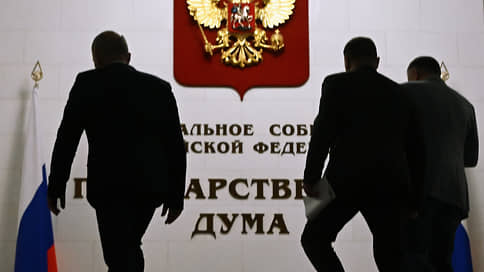The State Duma will hold additional meetings and will be able to invite ministers more often
[ad_1]

The Council of the State Duma on Monday decided to hold four plenary sessions in the next two weeks instead of three. Speaker Vyacheslav Volodin made such a proposal, explaining this by the need to approve a number of important bills before the end of the session. And on Tuesday, the Duma plans to adopt amendments to its rules of procedure, giving the Council of the Chamber the right to promptly invite ministers to plenary meetings. Their participation may be required, including during the re-consideration of laws rejected by the Federation Council, the expert believes.
According to the new schedule, the number of plenary meetings will be increased from three to four in the next two weeks. The last plenary session of the spring session will be held on July 26, after which the deputies will work in the regions until August 7, and then go on vacation. “It is important to consider a number of bills before the end of the session, including additional guarantees to support orphans in providing them with housing, exemption from VAT for tour operators working in domestic and inbound tourism, gender reassignment ban”, Vyacheslav Volodin explained his proposal.
Recall, in 2022, the spring session ended on July 6, but already on July 15, Speaker Vyacheslav Volodin convened deputies for an extraordinary meeting to “consider initiatives to support citizens and the economy,” which could not be left for the fall. Then the Duma approved Minister of Industry and Trade Denis Manturov as Deputy Prime Minister.
On July 11, the chamber plans to introduce amendments to its rules of procedure, giving the Duma Council the right to promptly invite ministers and other officials to plenary meetings.
Andrei Kuznetsov, First Deputy Chairman of the Duma Commission on Regulations (A Just Russia – For Truth), explained to Kommersant that this would increase mobility in making such decisions. “Sometimes, within the framework of the current agenda, it is necessary to quickly make a decision to put certain ministers on the schedule of the Duma with a report,” he said. According to the deputy, among other things, the new procedure will allow officials to be invited during the second consideration of bills rejected by the Federation Council.
“The invitation of ministers to the plenary session may be caused, for example, by the need to settle controversial legislative initiatives that have not received the approval of the Federation Council, or to explain the goals of regulation at the stage of considering the concept of the bill in the first reading or parliamentary amendments to the second reading,” believes a member of the RASO committee on political technologies Pavel Sklyanchuk. – In this sense, the Duma council can decide on the need to hear the minister quite quickly, but most likely this rule will not be abused. Usually, ministers negotiate with relevant committees when they themselves are interested in supporting the initiative, and report at the plenary meeting instead of the secretaries of state of departments.” So it was, for example, when the head of the Ministry of Digital Development Maksut Shadayev recently participated in the discussion of a bill on the access of Internet providers to residential buildings, and the Minister of Health Mikhail Murashko personally spoke and answered deputies’ questions when discussing the initiative to ban gender reassignment, the expert recalls.
But some amendments to the regulations are not enough for this, Mr. Sklyanchuk adds, the invitation of the minister to the Duma is a political issue, which must be agreed with the prime minister or the supervising deputy prime minister.
It should be noted that since the beginning of the work of the eighth convocation of the State Duma, the Federation Council has rejected four laws: on cashless payments with individuals for the acceptance of scrap metal, on the introduction of investment quotas for catching bioresources, on the initiation of criminal cases on a number of economic articles without a statement from the injured party, and on the introduction of mandatory online platforms in schools. And at the beginning of 2022, for the first time, a norm was introduced into the Duma regulations on the creation of a conciliation commission, if a third of the regions speak out against the bill.
[ad_2]
Source link








